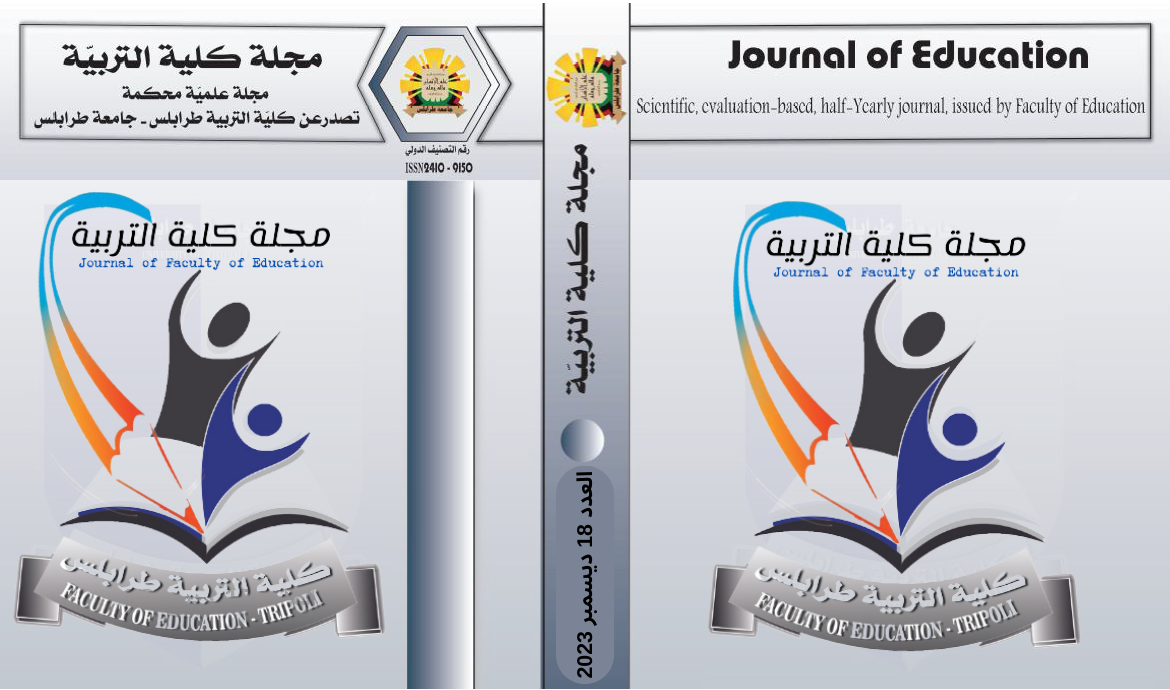النص الأدبي العربي ورهان التأويل بين التراث والمعاصرة
الكلمات المفتاحية:
التأويل، آليات التأويل،، النص الأدبي،، التراث العربي،، الأدب المعاصرالملخص
إن قضية تأويل النص الأدبي، قضية تضرب بجذورها في عمق تراثنا العربي وتمتد فروعها إلى وقتنا الحالي، ذلك أن التأويل سيرورة متواصلة تتساوق مع التطور الإنساني، لذلك فهو يشكل إحدى الممارسات الفكرية الثقافية المتأصلة في الإنسان والتي لا يمكن الاستغناء عنها، وقد عرفت الثقافة العربية التأويل قديما وازدهر معها بظهور الإسلام ونزول الوحي، ليستفيد النص الأدبي من هذه الممارسة لاحقا بعد تعمق تجربتها بالنص الديني.
يروم التأويل الوصول إلى المعنى وتفكيك بنيات النص وفق آليات مختلفة يستعين بها المؤول، قصد بناء استراتيجية تأويلية تمكنه من تحليل النص وفك رموزه وكشف دلالته الضمنية وبنياته العميقة، ولعل النص الأدبي يعتبر فضاء رحبا للتأويل، لما يوفره باعتباره نسقا لغويا من تعدد للدلالات ومعان غائبة تتيح للتأويل تطبيق آلياته وممارسة استراتيجياته لاستنباط هذه المعاني وكشفها، بالتالي فقد جاءت هذه الدراسة لتشتغل على التأويل وآلياته في تحليل النص الأدبي، وتحديدا النص الأدبي العربي.
حيث عَرَضَتْ بداية لمفهوم التأويل والنص، ووضحت العلاقة بينهما، لتقارب في شقها الآخر الآليات التأويلية وطرق اشتغالها على النصوص الأدبية، معتمدة على نماذج تراثية ومعاصرة ومسلطةً الضوء على كيفية إنتاج المعنى فيها، لتقارن بينها في محاولة لرصد نقاط التشابه والاختلاف بين تأويل النص الأدبي قديما وبين التأويل المعاصر الذي يستأنس ويعتمد على نظريات ومناهج غربية دخيلة على ثقافتنا العربية.
The literary text Interpretation issue is deeply rooted in our Arabic heritage, and its branches extend to the present time. Interpretation is a continuous process that evolves with human development, making it an essential cultural and intellectual practice. Arab culture has long been familiar with interpretation, especially with the emergence of Islam and the descent of revelation, which later benefited literary texts as they delved into religious texts. Interpretation aims to reach the meaning and deconstruct the structures of the text according to various mechanisms used by the interpreter, with the intent of constructing an interpretive strategy that enables it to analyze and decipher the text and reveal its implicit significance and deep structures. The literary text may be considered a wide space for interpretation because it provides as a linguistic system a multiplicity of connotations and absent meanings that allow interpretation to apply its mechanisms and practice its strategies to elicit and reveal these meanings. Therefore, this study focuses on interpretation and its mechanisms in analyzing Arab literary text, presenting the concept of interpretation and text and clarified the relationship between them, to converge in its other part the hermeneutic mechanisms and its methods that work on literary texts, depending on traditional and contemporary models and highlighting how meaning is produced in it, then comparing them in an attempt to observe the points of similarity and differences between the interpretation of the literary text in the past and the contemporary interpretation that relies on Western theories and methods which are alien to our Arabic culture.




